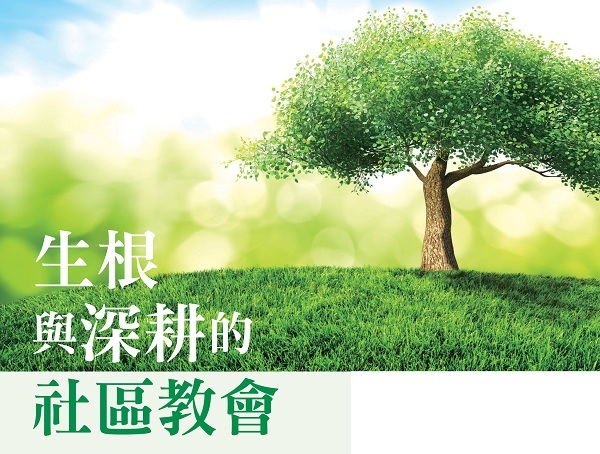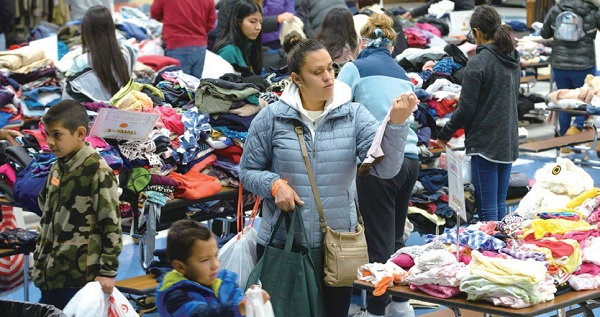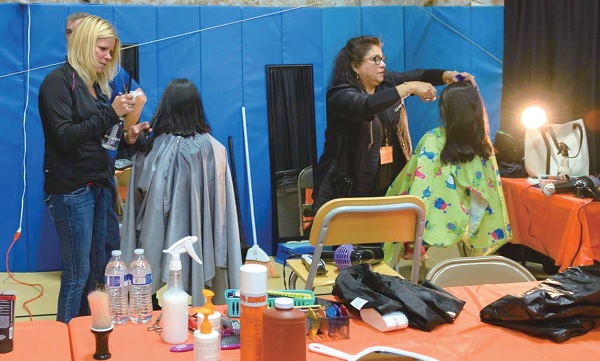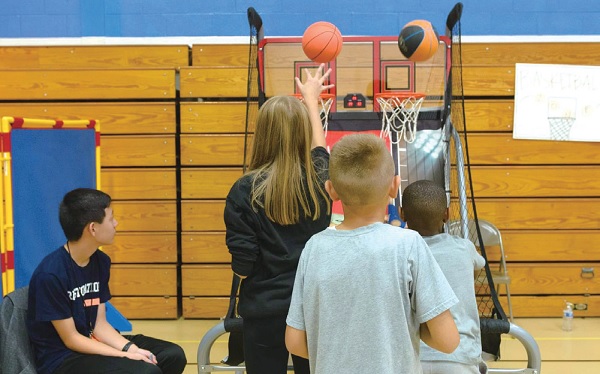A community church that takes root and cultivates deeply
Interview/Photo provided by Wu Xinhui/Derek Lee

In 2010, two young families living in the suburbs of Chicago established the cross-cultural Restoration Community Church (RCC) because they were moved by community missions. Starting from two or three families, we are deeply involved in community missions. For the past ten years, the church has been committed to evangelizing the community and linking up with local companies to actively participate in community activities.
How do they take root in the community and allow the love of Christ to flow through the community? This magazine specially interviewed Derek Lee (hereinafter referred to as Derek), the former director of missions of RCC, to share how RCC implements community missions actions.
What is the vision of RCC church to "connect the community"?
Derek:The church’s vision is to become a missionary center in the community where it is located, to have a good interactive relationship with the community, and to make the church the light and salt of the community, thereby cultivating the service habits of the brothers and sisters in the church and benefiting from it.

▲One of the community service focuses of "Qingqiu Exhibition" is to care for the health of disadvantaged families.
How does the church connect and interact with its community?
Derek:This can start from three aspects. First, you need to understand your environment, starting from participating in community activities. For example, in school PTA (parent-teacher association) activities, the church pastor is the photographer of the school district PTA. We also hold the "Fall Festival" every October.
Second, connect with nearby organizations. "Take root in the community and be deeply involved in the community" is the core of RCC's community mission. We participate in community events and help organizations raise funds. Learn from your engagement experience which nearby organizations are truly committed to serving the community and with whom you can connect and collaborate. In addition, some brothers and sisters in the church work in the medical field, so we also cooperate with government agencies to counsel children with autistic tendencies from low-income families and help them diagnose and receive early treatment.
The third aspect is to actively join the ranks of volunteers. We believe that just connecting is not enough, and we also encourage brothers and sisters to become volunteers. For example, it cooperates with "Bridge Community" (a homeless care organization) to send volunteers to teach young street residents, or cooperates with "World Relief" (World Relief) to send volunteers to teach in refugee settlement areas. English etc.

▲Second-hand clothing stalls attract many low-income families to choose clothes.
Please introduce the activities of the "Autumn Festival Exhibition".
Derek:The "Autumn Celebration Exhibition" is an outreach activity that mobilizes the whole church. We set up stalls with different themes, such as game stalls, hot dog and drink stalls, second-hand clothing stalls, medical consultation stations, etc. We promote the "Celebrate Autumn Fair" in low-income areas, cooperate with the "Bridge Community Association" to bring people to participate, and also cooperate with nearby Walgreens and CVS to provide free flu shots. It also cooperates with Supercuts hair salon to cut hair for low-income families for free. Second-hand clothing stalls are very popular because they allow low-income or refugee families to choose the clothes they need. In the past few years, the number of participants has increased to five to six hundred.
Because of the relationships built through our involvement in the community, when we approach us about fundraising or partnership possibilities, we usually receive positive feedback. When preparing for the "Autumn Celebration Exhibition" every year, the store will proactively contact the church to see if they want to donate goods or provide free services. There are also barbers who take the initiative to contact us and express their willingness to provide free hair cutting services. The city government also contacted us and asked if we could provide psychological care for young people. In fact, there are also things that the government has insufficient funds or cannot do. There are medical staff in the church who are willing to devote themselves to caring for physical and mental diseases.
Can you talk about the challenges that ministry faces?
Derek:Deep cultivation takes a long time to operate, and it may not be effective in a short time. When no results are seen, those involved will lose patience and find it difficult to commit. On the other hand, because the recipients of service are poorer families, some people often hope to see the other party being touched or feel grateful. If it is not as expected, they will often lose motivation to serve. Sometimes there is no reward for serving, but we do not serve because there is a reward, but because God wants us to do so.

▲Supercuts hair salon participated in this grand event and provided free haircut services to the community.
Any advice for churches that want to be deeply involved in their communities?
Derek:First, we must look at what God’s calling is for the church. For example, our church has many young families and many teenagers, so we can participate in the ministry of mentoring young people. Church members are God-given resources and therefore will be passionate about issues that concern them. There are many physicians in the church, so we also value medical-related ministries.
Second, we need to understand which charities in the community have the same vision as the church’s calling and passion. Only after a comprehensive understanding can we have a good outreach and cooperation relationship.
Third, clarify which aspect of service is most needed. What is most needed is often the hardest to do. When I first came to the church as a missionary co-worker, brothers and sisters would suggest various possible community missionary channels to me. I visited and evaluated them one by one, and then started to connect and cooperate with them. The outreach directions recommended by brothers and sisters are often service projects that members are willing and enthusiastic about. Such ministries are usually more sustainable. Deeply cultivating the community really requires more time and energy.

▲The game booth is very popular with children and teenagers.
At this time due to the spread of COVID-19, what outreach strategies do you think should be adopted?
Sometimes the ministries that are most needed are the ones that go unnoticed. When Jesus was preaching, his schedule was often interrupted by people seeking Him, such as the woman at the well, the sick at the pool, the woman with an issue of blood. When disaster strikes, human nature is tested, and we often only focus on self-preservation. We should imitate Jesus and use the needs of others to block the selfishness in our hearts. Currently, church colleagues will notify everyone online about which families need supplies or donations. The more difficult the life becomes, the more we must imitate the Lord Jesus.
Interviewee profile
Derek Lee, former mission director of Restoration Community Church (2016-2020). Graduated from the Keough School of Global Affairs at the University of Notre Dame in 2020, majoring in Sustainable Development. He has many years of outreach experience, including tutoring high school students in Chicago, rural ministry in Nepal and refugee camp ministry in Bangladesh and Uganda.
Sherry Lee, writer, executive editor of this magazine.
